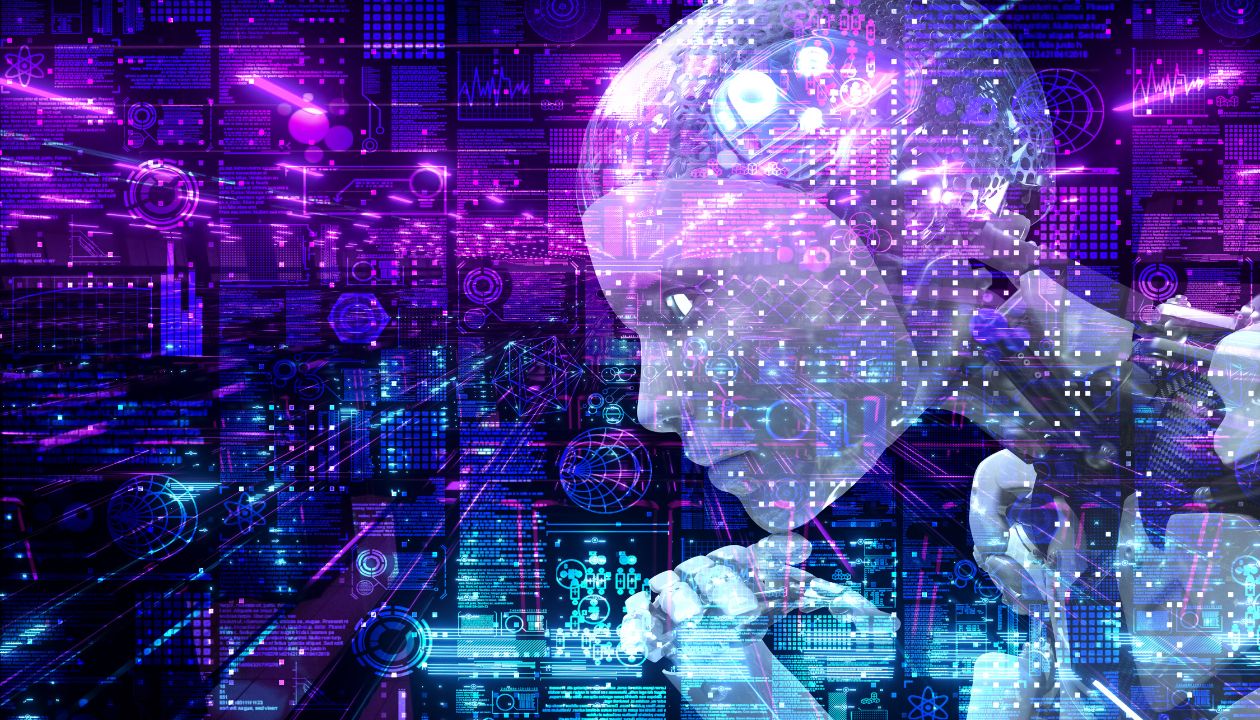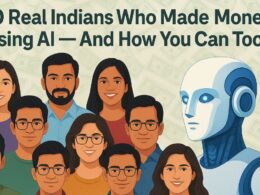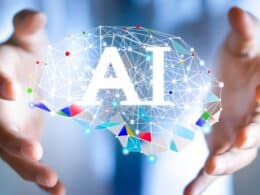Over the last three decades technology industry has seen a lot of innovations and new inventions. Artificial Intelligence or AI technology is one such field that has changed our everyday lives drastically.
There isn’t any part of our lives that hasn’t been touched by AI. Whether it is automating human jobs or digital assistants like Apple Siri or the recent introduction of ChatGPT, all of them have a profound effect on our lives.
In this article, we will learn more about AI, its types, characteristics and real-world applications from a layman’s perspective.
You will also learn who is considered to be the father of AI.
Therefore I will try my best to keep this article as simple as possible without using any technical jargon.
So let us begin …

What is Artificial Intelligence (AI) in Simple Words?
According to American Computer scientist and cognitive scientist John McCarthy, Artificial Intelligence (AI) is “It is the science and engineering of making intelligent machines, especially intelligent computer programs. It is related to the similar task of using computers to understand human intelligence, but AI does not have to confine itself to methods that are biologically observable.”
In simpler words, artificial intelligence is the simulation of human behaviours by computer systems. It simulates human intelligence by relying on algorithms. In other words, you can say AI is making computers think like human beings.
Generally, there are four approaches to AI:
- Acting Humanly
- Thinking Humanly
- Thinking Rationally
- Acting Rationally
AI scientists design various computer systems that can think like humans and also act like humans. AI systems can think and act rationally, just like normal human beings.
Different Types of Artificial Intelligence
Let us dig deeper into Artificial Intelligence!
We can broadly divide AI into two categories.
Category 1: Capabilities-Based AI
Category 2: Functionality-Based AI
You can further divide these two categories into subtypes.
Capabilities-Based AI
Capabilities Based AI has three types,
- Narrow AI – Also known as Weak AI, performs one narrow task like Apple Siri that can perform limited pre-defined functions.
- General AI – It is much stronger and can perform much more sophisticated tasks like a human being. Supercomputers are the best examples of General AI.
- Super AI – Super AI surpasses human intelligence and can perform tasks that are beyond human comprehension. For example, Super AI systems can think, desire, and evoke emotions, feelings, needs etc.
Functionality-Based AI
Functionality Based AI has four types:
- Reactive Machines – Reactive Machine does not store any data or memory or any past experiences to determine future actions. They work on real-time data. An example is IBM’s Deep Blue machine which defeated chess grandmaster Gary Kasparov.
- Limited Memory – On the contrary, Limited Memory uses past data to make future decisions. However, the memory is very short-lived. Self-driving cars use limited memory.
- Theory of Mind – The Theory of Mind is a very advanced technology and exists only as a concept. Theory of Mind AI requires a comprehensive knowledge of people and the environment they operate.
- Self Awareness – Self Awareness is also just a concept and only exists hypothetically. Such machines are smarter than a human being.
What are the Characteristics of AI?
Without getting into technical, I would like to mention 3 main characteristics that contribute to AI.
1. Feature Engineering
Feature engineering is the process of identifying a proper nominal set of attributes or characteristics from the given dataset.
The outcome will depend upon choosing the right set of attributes.
2. Artificial Neural Networks
Artificial Neural Networks, also known as neural networks, are collections of connected nodes known as artificial neurons, just like human brain cells.
3. Deep Learning
Deep learning allows computers to behave just like humans. Some of the applications of deep learning are image classification, speech recognition, computer vision etc.
Some other characteristics are:
- Natural Language Processing
- Robotics
- Perception
- Data Ingestion
- Quantum Computing
- Cloud Computing
I have kept the explanation very concise here because getting into details is going to be beyond the scope of this article.
Also Read: Best Artificial Intelligence Courses
Examples and Application of AI
As a layman, you can understand AI better by learning its real-world applications. Following are some of the best applications of AI in our day-to-day lives.
1. Google Maps
The app algorithm uses machine learning to identify buildings and landmarks in your city. AI also tells precise distance, and time it will take to reach a particular destination. AI provides users a much better experience than GPS.
2. Face Recognition
Face ID for unlocking phones and using virtual filters on our faces are two uses of AI in our day-to-day lives.
3. Text Editors or Autocorrect
Text editors come with features like spell check, errors, plagiarism, grammar etc. They are all examples of AI.
4. Chatbots
Chatbots are not human beings. They are AI-supported software. Chatbot uses Natural Language Processing (NLP) to train chatbots to impersonate customers.
5. Online Payments
Online payment systems use AI to identify genuine customers and detect fraud while completing a transaction.
Also Read: Top 10 Payment Gateways in India
6. Search and Recommendation Algorithms
Search engine algorithms use a lot of AI to understand what exactly users want. These algorithms are designed to understand user behaviour and offer customized solutions.
7. Digital Assistant
Apple Siri is one of the best examples of Digital assistant.
8. Social Media
Social media uses AI technology extensively to weed out all the hate content from various social media platforms.
9. Healthcare
AI is used in the Healthcare industry to learn about patients’ medical history and plan treatment accordingly.
10. Gaming
AI is used extensively in the gaming industry to develop new games.
So these were 10 real-world applications of AI technology that we could see in our day-to-day lives.
Who is considered to be the Father of AI?
John McCarthy, an American computer scientist is considered to be the father of Modern AI. John McCarthy was born on 4th September 1927, in Boston, USA.
In his proposal for the 1956 Dartmouth Conference, the first artificial intelligence conference, cognitive scientists coined the term.
John McCarthy wanted to create a machine that could think and solve problems like human beings.
He said, “Every aspect of learning or any other feature of intelligence can, in principle, be described so precisely that a machine can be made to stimulate it.”
He coined the term Artificial Intelligence and invented the first programming for symbolic computation called LISP.
He paved the way for the world’s technological innovations like programming languages, the internet, the web, robots etc.
Major AI Achievements by John McCarthy
- In 1971 he received the Turing Award from the Association for Computing Machinery.
- In 1988, Kyoto Prize was awarded.
- In 1990 he was awarded the National Medal of Science in Statistical and Computational Sciences by the USA.
- In 2003 Franklin Institute awarded him Benjamin Franklin Medal in Cognitive Science and Computers.
I hope after reading this uncomplicated article, you will be able to develop an understanding about AI and its real-world applications.









